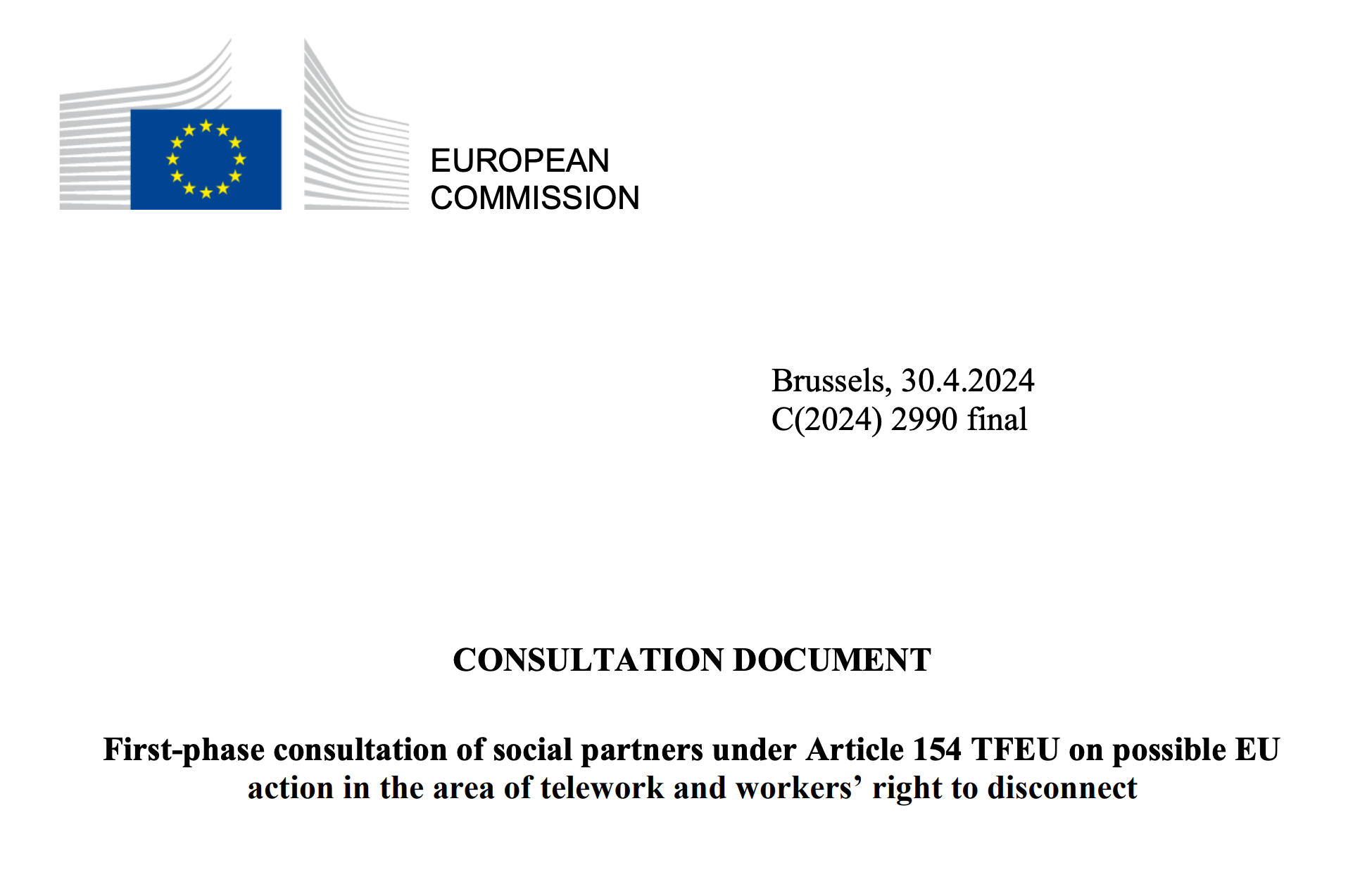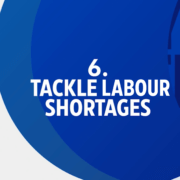EU leaders call for comprehensive telework policies in response to European Commission’s consultation
Through CEC European Managers, member organisations of leaders and managers in Europe have cooperated and issued a detailed response to the European Commission’s consultation on telework and the right to disconnect, emphasizing the need for comprehensive and harmonized teleworking policies.
In a significant move towards addressing the evolving work environment, the European Commission initiated on April 2024 the first-stage consultation with CEC European Managers and the rest of European social partners to gather their perspectives on potential EU action to ensure fair telework and the right to disconnect.

This consultation marks a pivotal step in shaping future policies to accommodate the growing trend of remote work and address its associated challenges.
Worldwide, the shift to telework has become increasingly prominent, particularly since the onset of the COVID-19 pandemic. According to the EU Labor Force Survey, the proportion of people working from home in the EU has nearly doubled over the past few years, increasing from 11.1% in 2019 to 20% in 2022.
This surge underscores the need for comprehensive policies that cater to the diverse nature of telework across various industries, sectors, and job profiles.

Recognizing the diverse challenges and opportunities presented by telework, the EU managers highlighted critical areas requiring attention, including health and safety, cybersecurity, managerial support, equal treatment, and sectoral flexibility.
In short, managers and leaders recognize the benefits of telework and its potential. However, while it is seen as beneficial, it also introduces significant health and safety risks. These include poor workstation ergonomics, sedentary lifestyles, visual fatigue, and psychosocial stress.
The proportion of people working from home in the EU has nearly doubled over the past few years, increasing from 11.1% in 2019 to 20% in 2022.
EU Labor Force Survey
CEC European Managers member organisations insist on the importance of implementing safeguards to mitigate these risks and establishing the right to disconnect as a fundamental condition for telework. In order for the relation between teleworking and disconnecting to be optimal, managers think that clear guidelines for ergonomic home workstations, mandatory health and safety training for teleworkers, access to mental health resources, and the enforcement of the right to disconnect are mandatory to prevent burnout and maintain work-life balance.
Also, with the shift to telework comes an increased need for robust cybersecurity measures. European managers underscore the necessity of enhancing employee awareness of cybersecurity threats and conducting regular cybersecurity assessments and monitoring. This involves developing comprehensive cybersecurity training for all teleworkers, regular security assessments, and establishing clear protocols for secure remote access and data handling.
Managers working in sectors requiring continuous operations, like healthcare, face unique challenges in exercising their right to disconnect. Due to the nature of their work, their workload is often managed in a hybrid way, and managers often need support in handling hybrid teams and maintaining boundaries.

Fair treatment and non-discrimination in telework were also highlighted. Managers think that telework regulations across the EU should be harmonized, and targeted policies to support underrepresented groups must be implemented. Another aspect that could foster equality and facilitate work-life balance is making sure that telework arrangements are voluntary and include financial compensation.
The rise of digital nomads
Worldwide, the movement of digital nomads has been growing in the last decades and Europe has become the most attractive global hub for mobile workers. Despite the opportunities for EU unification and diversity, managers recommend promoting sector-specific bargaining to tailor telework arrangements while involving worker representatives in telework negotiations.

The rise of digital nomads and cross-border teleworking necessitates a uniform legal framework to address various organisational and legal challenges. CEC European Managers advocates for an EU-wide legal framework for cross-border teleworking and digital nomads, standardizing health and safety regulations for teleworkers, and providing clear guidelines on tax obligations and labor laws for remote workers and employers.
Telework policies must also be adaptable to the unique needs of different sectors. CEC European Managers recommends promoting sector-specific bargaining to tailor telework arrangements, involving worker representatives in telework negotiations, and ensuring that telework policies are adaptable to evolving sectoral needs.
CEC European Managers asserts a clear necessity for EU-level intervention to address the fragmented landscape of telework and the right to disconnect across Member States. Such intervention is essential to establish a consistent and fair framework, ensuring equitable treatment and protection for teleworkers regardless of their location.
Other considerations
CEC European Managers encourages the European Commission to introduce a directive setting minimum standards for telework and the right to disconnect but warns policymakers that overregulation could stifle flexibility and innovation.
That is why managers think that the focus should be on setting minimum standards and providing guidance while allowing Member States and social partners to adapt these frameworks to local contexts.
Social dialogue in negotiating and implementing telework agreements is seen as crucial for finding balanced solutions that reflect the interests of both workers and employers.
In conclusion, the members of CEC Europea Managers, representing 1M leaders in Europe, have responded to the European Commission‘s consultation call with a comprehensive, inclusive, and flexible approach to telework policies and the right to disconnect in order to ensure competitiveness while respecting worker’s rights and making sure that it does not create new inequalities or exacerbates the existing ones.










